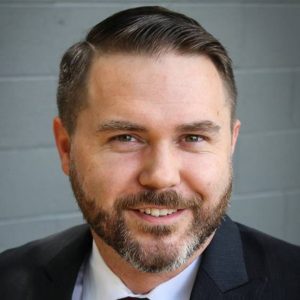By Jonathan Scott Webber, Florida Conservation Voters
Florida isn’t just witnessing the greatest public-health disaster in our history. We’re also losing part of our democracy.
Right now, the Florida Legislature is considering several bills that will weaken local government and silence the voice of the people. This assault is most blatant in the outright attacks on our communities’ ability to have a say in how we power our homes and businesses.
Senate Bill 1128 and House Bill 919 would strip away cities’ and counties’ authority to take any action that would prohibit or restrict the type of fuel used, transported or sold by electricity and gas providers. These bills will remove community voices from all decisions about our energy and pull the plug on local progress on clean energy.

Floridians have worked for years to push their cities to achieve 100 percent clean energy. This legislation will nullify their work and, if passed, communities will be unable to adopt building codes better suited for our emerging clean-energy economy.
Broad, vague preemptions such as this are inherently dangerous, especially when dealing with intimately related issues to public health and safety, such as energy. The overly broad language could overturn many local regulations, policies and safeguards meant to preserve safety and health. This blanket rollback will cause confusion and almost certainly spark litigation.
The legislation didn’t come from out of nowhere. It was carefully drafted by the fossil-fuel industry. Similar proposals are making their way, or have already passed through, more than a dozen other state legislatures as part of a nationwide effort to prevent the spread of fully electric building codes. But in Florida, the fossil-fuel industry went a step further, aiming to block cities and counties from innovating how we power our homes and businesses, making utilities more efficient and lowering energy costs.
NASA, NOAA and scientific bodies worldwide are urgently warning governments to find ways to reduce the reliance on dirty fossil fuels. With the Florida Legislature’s failure to do anything meaningful to reduce greenhouse-gas emissions, city and county commissions have stepped up as leaders, setting renewable energy goals, updating and modernizing building codes and other energy-smart measures.
Of course, all of this progress came at the chagrin of pro-fossil-fuel monopoly utilities, who want nothing more than to maintain their dominance over our energy infrastructure. SB 1128 and HB 919 are their avenues to remove the pesky public once and for all, making it illegal for us and our local governments to have a say.
Floridians already are among the most disempowered citizens in the United States related to their energy. Residents cannot select their utilities. We cannot subscribe to power-purchase agreements or third-party sales. We can’t pool our resources to develop and co-own community solar facilities.
And we can’t even vote on the members of the Public Service Commission, who could, in theory, regulate our massive monopoly utilities if the Legislature empowered them to do so. In Florida, we flip the light switch, and we get what we get.
Instead of expanding the power of citizens to determine their energy future, SB 1128 and HB 919 will further reduce the avenues for citizen input and lock in a system that has failed to respond to Floridians’ needs. The only choice this bill provides is the choice for our monopoly utilities to ignore us.
With in-person public access to the Florida Capitol limited because of COVID-19, pro-fossil-fuel legislators and lobbyists are betting that we will sit this legislative session out. That’s why it’s more important than ever to keep up with what senators and representatives are up to in Tallahassee and to hold them accountable for the decisions they are making for all of us, our families and our communities.
This opinion piece was first published in The Miami Herald.Jonathan Scott Webber is the deputy director of Florida Conservation Voters. You can contact him at @fcvoters
“The Invading Sea” is the opinion arm of the Florida Climate Reporting Network, a collaborative of news organizations across the state focusing on the threats posed by the warming climate.



